Diesel generators are essential for homes, industries, and any location requiring a backup power system during an outage or as the primary source of power when a site is too remote to be connected to the primary power grid. The primary drawback of any piece of machinery is the limited performance and reliability that often accompany a short lifespan. Hence, understanding the life expectancy of a diesel generator and the factors that affect it will enable you to achieve maximum utility from the investment made in it. Today, we will be discussing the average lifespan of diesel generators, the factors that affect their durability, and practical ways to safeguard them for a long time. This guide will help you become familiar with the essential knowledge required for generator preservation, whether you are an experienced operator or a first-time buyer.
Understanding Diesel Generator Life Expectancy
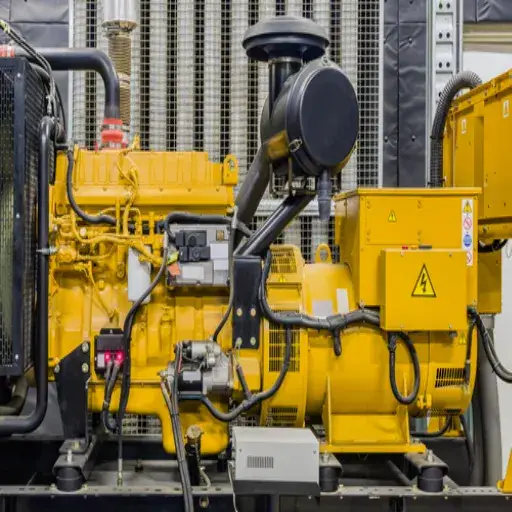
The average lifespan of a diesel generator, depending on its quality and maintenance, typically ranges from approximately 10,000 to 30,000 hours of operation. Service intervals, operating the generator according to the specified instructions, and operating under permitted load conditions are all criteria that significantly influence the generator’s life. Well-maintained generators of high quality, on the other hand, can provide longer life and can be counted on for years.
Average Lifespan of a Diesel Generator
Diesel generators have a reputation for durability and reliability; however, their lifespan can vary depending on several factors. Recent data and technological insights suggest that the build and component quality of the generator have a significant influence on longevity. Premium brands may have superior engineering designs and materials that can withstand longer use. The useful life is further extended by correct servicing, which includes changing oil on time, replacing filters, and checking the proper levels of coolant and oil. Using the generator within its rated load range prevents undue stress on the engine, thereby avoiding premature wear and tear. The environment also affects lifespan; working under extreme temperatures or in a dusty environment can reduce life if not appropriately managed. Typically, with proper maintenance and care, exceptional diesel generators can operate effectively beyond the standard range of 10,000 to 30,000 hours, with some models exceeding 50,000 hours in ideal conditions.
Comparison with Other Generators
| Generator Type | Advantages | Disadvantages |
|---|---|---|
| Diesel | Durable, fuel-efficient, reliable for heavy operations, and lower operating costs | Higher initial cost, more noise |
| Gas | Cheaper to purchase, less noisy | Higher maintenance costs, shorter lifespan |
| Solar | Environmentally friendly, virtually silent | Weather-dependent, limited power output |
In conclusion, in almost all scenarios, depending on the exact requirements, including power output, cost, and usage, diesel generators constitute a very reliable option for industrial and high-demand applications.
Factors Affecting Diesel Generator Lifespan
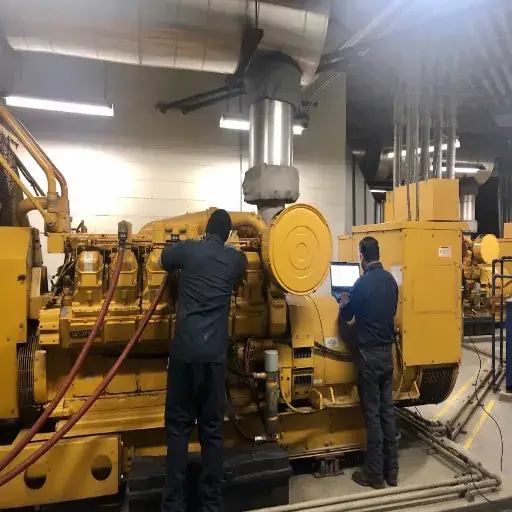
🔧 Maintenance Practices
Keep in mind that regular maintenance, including oil changes, filter replacements, and inspections of vital components, is essential to ensuring the diesel generator lasts for a long time. Without regular maintenance, the machine is likely to wear out prematurely or break down at a high cost.
⚡ Load Management
Operating the generator within the recommended load levels at all times prevents overloading. Overload strains the various components, reducing the generator’s efficiency. Conversely, long hours of operation at very low loads can also cause damage to it.
⛽ Fuel Quality
Clean, good diesel prevents clogging and wear of the fuel system. Performance may be affected and resultant failures increased when fuel is contaminated or is of inferior grade.
🌡️ Operating Environment
Operating in extreme temperatures and exposed to dust, moisture, or corrosive substances, a generator’s performance capabilities decline. Better longevity can be assured once measures have been taken to protect the unit from harsh conditions.
📊 Usage Frequency
Generators that are either overused or underused are liable to experience problems. Adequate harmony and controlled usage ensure their continual performance at peak level. Occasional testing, especially during periods of standby or idleness, is beneficial.
Maintenance Tips to Extend Lifespan
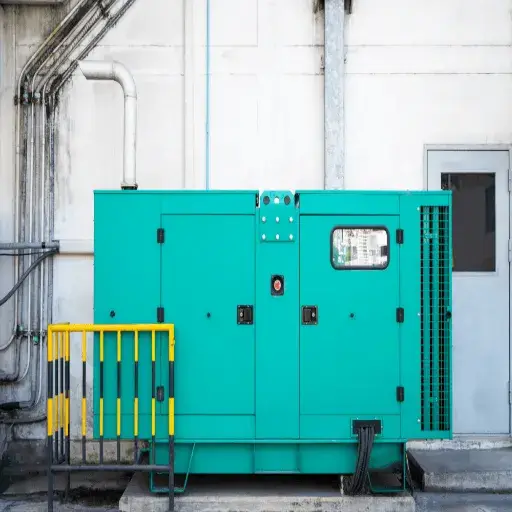
In the long run, diesel generators can only stay in working condition through routine maintenance activities. One of the most important aspects of maintaining an engine is servicing it according to the manufacturer’s instructions to prevent other problems from occurring. Some of the main checks that need to be carried out periodically include an oil change, filter replacements, cleaning/inspection of air filters, and verifying that coolant levels are adequate. Eliminating any abnormal sounds, vibrations, or signs of wear can also help identify a problem before it becomes an expensive repair.
Essential Maintenance Checklist
- 🔍 Perform Regular Inspections: Check for signs of wear, corrosion, or loose connections more frequently. If one can catch the trouble early, future problems can be prevented.
- 🛢️ Change Oil and Filters: As the manufacturer advises, perform all necessary oil changes, including oil filter changes, to keep the engine running smoothly.
- 🧹 Keep the Generator Clean: Keep the operator’s surface clean from dirt, debris, and buildup. This helps to have efficient operation.
- 🔄 Test the Generator Periodically: Operate your generator once or twice a month to keep it in working condition and prevent residual fuel from clogging the system.
- ⛽ Inspect the Fuel System: Check for fresh fuel, inspect the fuel lines for leaks or damage, which can cause issues with starting and consistent performance.
- 🏠 Store in a Safe Environment: Protect the unit from extreme temperatures, moisture, and salt exposure with an appropriate enclosure or cover.
Environmental Conditions Impacting Lifespan
Environmental conditions predominantly influence the lifespan and working capacity of a generator. Agents such as abnormal temperatures, excessive dust, or salt-laden impurities in the atmosphere accelerate the deterioration of the equipment. Consider, for instance, diesel fuel in freezing temperatures, which has a propensity to gel, making it difficult to start a generator. In contrast, extreme heat tends to burden components like engines and alternators. A generator situated in a coastal area is hence an object of corrosion, as one of the major constituents of the corrosive air is salt, which corrodes metal parts over time. To minimize environmental impact, it’s of utmost importance to protect the generator adequately with enclosures and adequate ventilation, along with regular cleaning.
Preventative Measures for Longevity
For your generator to operate smoothly and efficiently, it is vital to take a set of preventative measures. Regular maintenance, discussed in detail earlier, forms the central part of these measures. Alongside that, the installation of modern monitoring systems that track generator performance in real-time and provide automatic alerts for any deviations should also be considered. These advances in technology offer you the option to detect issues early on, thereby avoiding the expensive repair costs and unexpected downtime that would otherwise occur.
Technological Advancements in Diesel Generators
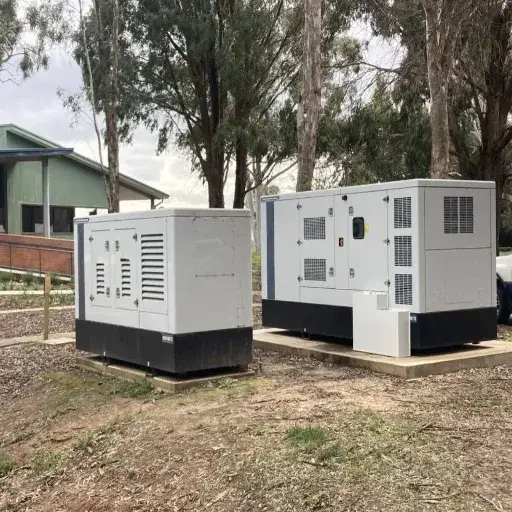
Modern diesel generators have undergone numerous changes to enhance efficiency, reliability, and address environmental concerns. Another big leap toward optimization is the integration of electronic control systems for adjusting fuel consumption and ensuring smooth operation. The emission control technologies have advanced to make the generator greener; for example, the Diesel Particulate Filter (DPF) and the Selective Catalytic Reduction (SCR) system filter out emissions that could be harmful. Remote monitoring now enables one to track generator performance, allowing for prompt maintenance and preventing downtime. All these would indeed add to the improvement of functionality and sustainability of a diesel generator.
Fuel Efficiency Improvements in Modern Engines
Modern engines are outstanding in terms of fuel efficiency thanks to a combination of advanced technologies and innovative designs. Direct fuel injection systems enable precise delivery of fuel into the combustion chamber, ensuring optimal energy conversion and minimal waste. Meanwhile, the power boost from exhaust gases is how turbochargers exert their effect, as maintenance engineers must not add fuel to increase power. From an engine-building and design perspective, the use of lightweight materials and aerodynamic shapes helps reduce fuel consumption. Additionally, hybrid powertrains and stop-start systems have been gaining traction as two prominent methods to enhance fuel efficiency in stop-and-go driving, as idle fuel consumption is a waste. Together, these cutting-edge technologies surpass previous limits to maximize efficiency, supporting sustainability goals and reducing environmental impact.
Smart Technology Integration in Generators
The adoption of innovative technology has led to changes in operating systems and power systems. These modern features, like real-time monitoring, remote controls, and predictive maintenance, help ensure reliability and efficiency. Smart generators, equipped with IoT technology, can alert users or service providers to performance issues or maintenance needs, thereby reducing operational downtime and ensuring optimal operation. On the other hand, integrating these with renewable energy sources and grid management systems further enables innovative energy applications, thereby reducing their ecological footprint. The advancements ensure convenience and also align with current energy sustainability goals.
Diesel Generators vs. Other Power Solutions
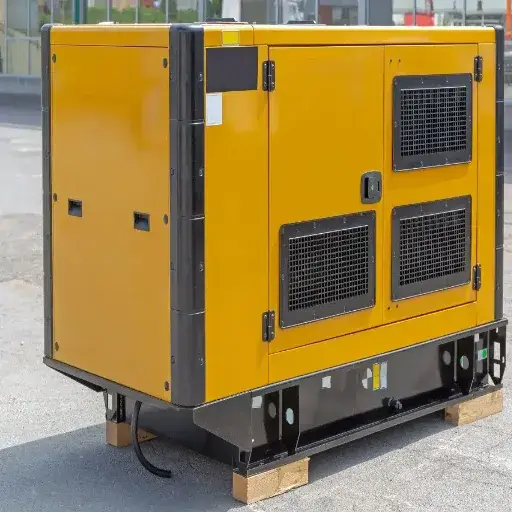
When we compare diesel generator power solutions to others, we consider the following:
- Reliability: Diesel generators have a reputation for reliability and consistent power supply, making them primarily used in life-saving applications, such as hospitals, industrial settings, and data centers.
- Fuel Efficiency: Generally, a diesel engine is considered more fuel-efficient than a gasoline engine, resulting in lower operating costs over time, particularly when used for extended periods.
- Durability: Diesel generators are made to stand the test of time and rugged conditions, and with proper maintenance, can last longer than some alternatives.
- Versatility: Diesel generators can operate far from their location sites; thus, they are less reliant on external supporting infrastructure, such as natural gas lines or renewable energy setups.
- Environmental Impact: Diesel generators emit pollutants, while newer designs are made more efficient with additional emission controls. Meanwhile, solar or wind energy is definitely more environmentally friendly.
- Initial and Long-Term Costs: Diesel generators are known to have higher initial costs; however, they may provide lower maintenance and operational costs due to their durability, which makes them more efficient.
Environmental Considerations in Power Solutions
When seeking power solutions, environmental considerations must play a crucial role. Diesel generators are very reliable, but they emit vast amounts of greenhouse gases, including carbon dioxide (CO2), nitrogen oxides (NOx), and several particulates, which contribute to both less air pollution and greater climate change. These particulates affect the air quality and health of ordinary people. Renewable energy power systems, however, present a greener alternative, thus stressing the sustainability sentiment. Renewable sources generate energy without emitting greenhouse gases during their operations. Still, issues such as the environmental footprint of their production and disposal of materials like solar panels or wind turbines must be considered. Therefore, organizations and individuals will need to consider whether any power solution is beneficial for both immediate and long-term environmental sustainability.
Use Cases: Industrial vs. Residential Applications
🏭 Industrial Applications
In the industrial sector, energy demand typically varies in relation to the scale of operations, energy requirements, and geographical location. Industrial plants require energy-intensive operations to power large equipment, while solar farms, wind turbine parks, and hydroelectric power systems are viable large-scale options that should be considered. Large-scale installations that offer credit to industries through energy cost reduction are crimes against the environment.
🏠 Residential Applications
On the contrary, residential applications generally meet low-energy demands. Rooftop solar panels, small-scale wind energy, and storage systems, such as home batteries, are becoming increasingly popular among homeowners. By installing such systems, households can reduce their dependence on the conventional power grid, thereby saving money on utility bills and generating excess energy that can be returned to their local grids through programs like net metering.
Technology development is focusing on making renewable energy more accessible and affordable for both the industrial and residential sectors. With this, we are seeing mass adoption of renewable energy and its resultant benefits for the environment.
Frequently Asked Questions (FAQs)
What is the average life expectancy of a diesel generator?
The average lifespan of a diesel generator is typically around 20 to 25 years, depending on factors such as maintenance, operating conditions, and effective load management. Proper care and regular maintenance can significantly extend the lifespan of a generator.
How can I extend the life expectancy of my diesel generator?
To extend the life expectancy of your diesel generator, you should implement a regular maintenance schedule that includes checking and changing the oil, inspecting fuel filters, and conducting load bank tests. Keeping the generator running smoothly and addressing any issues promptly can help ensure longevity.
What factors affect the lifespan of a generator?
Several factors influence the lifespan of a generator, including the quality of the fuel used, the frequency of maintenance, the generator’s load, and environmental conditions. An oversized generator may not run efficiently, which can reduce its lifespan.
How often should I perform maintenance on my diesel generator?
It is recommended to have a professional service performed at least once a year to keep your generator in optimal condition. Regularly checking and changing the oil as needed will also contribute to the diesel generator’s longevity.
Can using a load bank test extend the life of a generator?
Yes, conducting a load bank test can help extend the life of a generator by ensuring it operates under load conditions similar to those it is intended for. This helps prevent issues like “wet stacking,” which can occur when a generator runs for extended periods without a sufficient load.
What is the impact of moving parts on the diesel generator’s lifespan?
The friction between the moving parts of a diesel generator can significantly affect its lifespan. Regular lubrication and maintenance can help minimize wear and tear on these components, thereby extending the generator’s lifespan.
How can I ensure my commercial generator lasts longer?
To ensure your commercial generator lasts longer, it is essential to select the right generator for your specific needs and to follow a rigorous maintenance routine. Keeping an eye on its performance and addressing any issues early can also help maintain its reliability as a power source.
What should I do if my generator is running continuously?
If your generator is running continuously, it is essential to closely monitor its performance. Ensure it is not overloaded and check for any signs of wear or malfunction. Regular maintenance, along with the possible installation of a load bank, can help it operate efficiently and extend its lifespan.
How can fuel choice affect the life expectancy of a diesel generator?
The choice of fuel can significantly impact the lifespan of your diesel generator. Using clean, high-quality diesel fuel helps prevent contaminants from clogging fuel filters and damaging the engine components, thereby promoting a longer lifespan.
Reference Sources
Here are five professional and authoritative reference sources that can be used to check the validity of your article concerning “diesel generator life expectancy”:
- Life Cycle Energy Assessment of a Standby Diesel Generator Set – Published on ScienceDirect, it provides a comprehensive discussion outlining the environmental and operational aspects related to diesel generators.
- Life Cycle Cost Analysis of a Diesel/Photovoltaic Hybrid Power Generating System – This academic paper discusses the operating hours and life expectancy of diesel generators in hybrid systems.
- Techno-Economic Analysis of Using Solar Energy, Diesel, and Electrical Networks for Water Pumping – Hosted by the An-Najah National University repository, the study sheds light on the maintenance and life expectancy of diesel engines for a wide range of applications.
- Significant Increase in Fuel Efficiency of Diesel Generators with Lithium-Ion Batteries – The paper under discussion, published in the journal “Energies,” explores hybrid diesel generator systems and issues related to operational efficiency.
- Towson University: Green Fleet Forward – Provides historical and technical considerations into diesel engines, including their development and operation.
